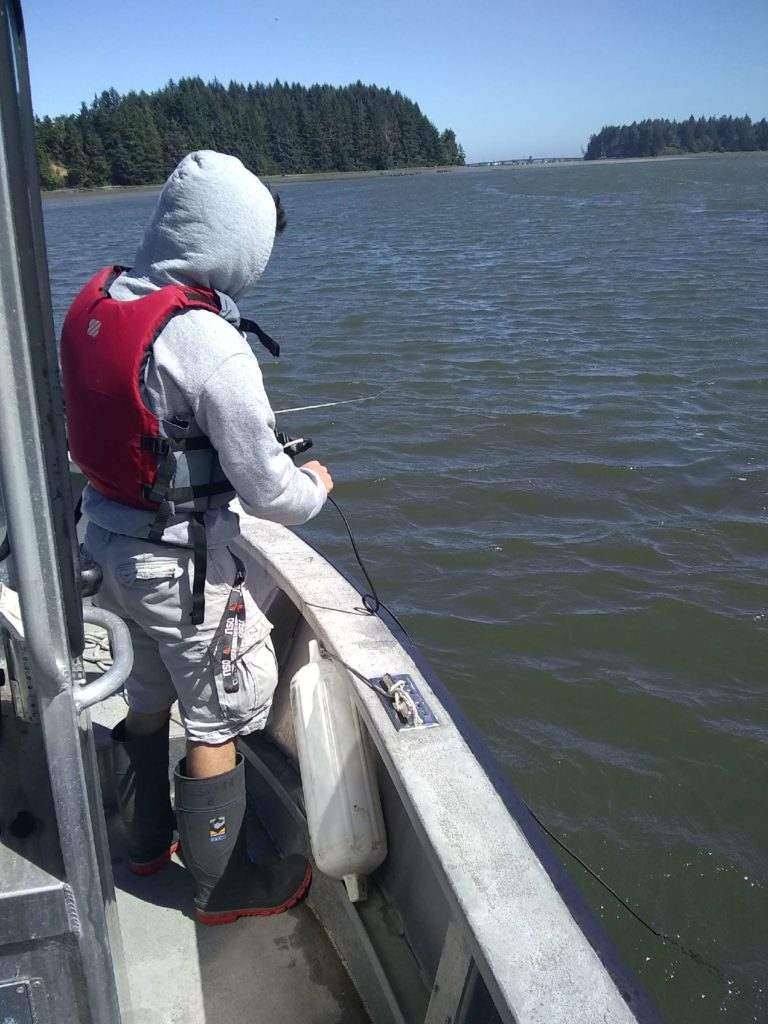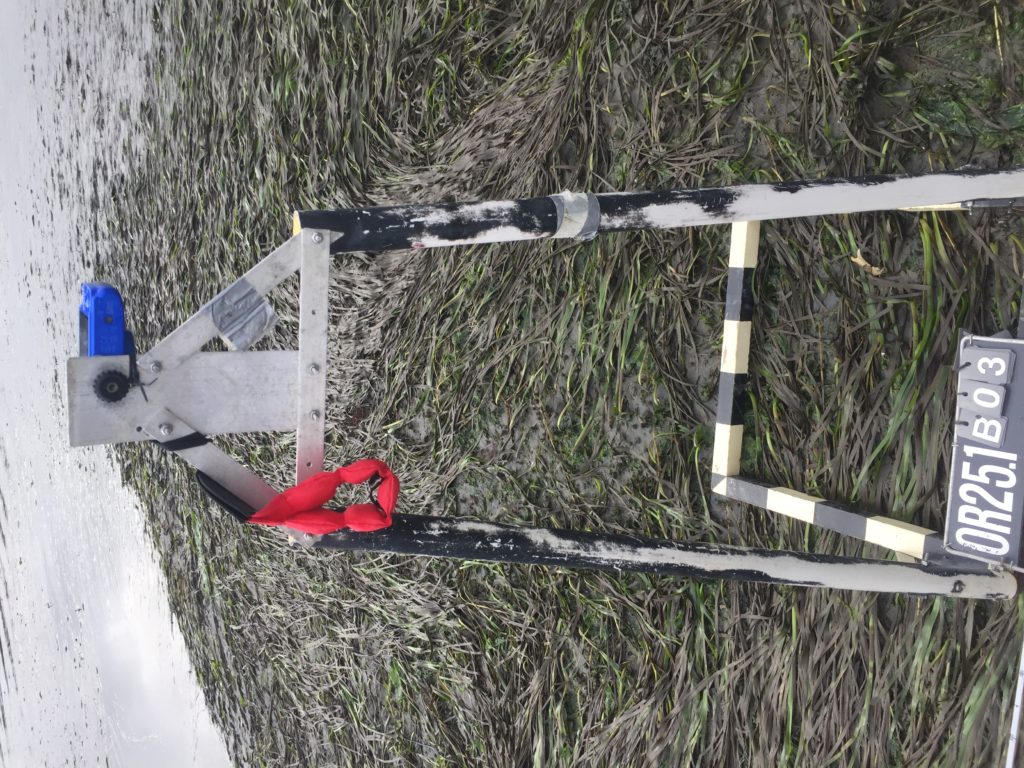So far, in my experience as a Sea Grant Summer Scholar, I have been presented with the opportunity to be involved in a variety of projects, research, and activities at the South Slough National Estuarine Research Reserve (SSNERR). I have been working for a little less than two weeks, but have already had the chance to work closely with the science team at the Oregon Institute of Marine Biology (OIMB) to monitor eelgrass beds, water quality, and green crab populations (an invasive species) in Charleston. In addition to assisting the science team this summer, my main task is to help improve the education outreach at the SSNERR. I will help plan, coordinate, and lead educational summer camps throughout the summer that teach kids about estuaries, ecosystems, and biology. In the past week, the education team at the Slough Slough (including myself) has begun planning all of the logistics for how to run the camps while ensuring a safe and sanitary environment for the kids. This summer, I am also tasked with updating and improving educational materials at the South Slough Interpretive Center. For example, in the past couple of weeks, I have been creating plant identification guides that visitors can use on the trails at the South Slough once the interpretive center is allowed to open up again (it is closed to the public right now because of COVID).


I hope to develop an in-depth understanding of estuarine ecosystems this summer, while also learning about how wildlife reservations are managed. These goals will be accomplished while working diligently to achieve the goals of our education team: to improve locals’ understanding of how estuarine systems work and why they are so important. If my summer internship is successful, I will help also enhance the materials that the South Slough has for delivering education in the future.
The work I do this summer will help improve educational outreach because I will be directly teaching and leading groups of local kids. I will also add to the educational materials that the South Slough has to deliver education by working on projects ― like the creation of the plant guide that I have been working on. In addition, I will add to the pool of information known about the South Slough Estuary by assisting in data collection with the science team.
These project goals will help advance Oregon Sea Grant’s mission because for coastal communities to flourish, citizens of coastal communities must understand how to properly utilize and care for their natural environments. Specifically, improving the understanding amongst youth can increase levels of interest in fields such as biology, conservation, and sustainability. Influencing future generations in this way can help achieve healthier coastal communities.
Similarly, my project goals help advance SSNERR’s mission, which is to serve as a model for how to properly manage coastal communities on regional, national, and global levels. Part of management involves public outreach, education, and data collection. These are the aspects of coastal management that I intend to improve in any way I can over the course of this summer.


This project sounds like an awesome opportunity to learn new things on many fronts Lucas! Thank you for sharing the fieldwork photos, and I look forward to receiving a copy of the plant identification guide when that’s done. You’re right that connecting with kids who live along the coast is a great way to further Oregon Sea Grant’s mission – check out https://oregoncoaststem.oregonstate.edu/ if you haven’t already.
Nice!